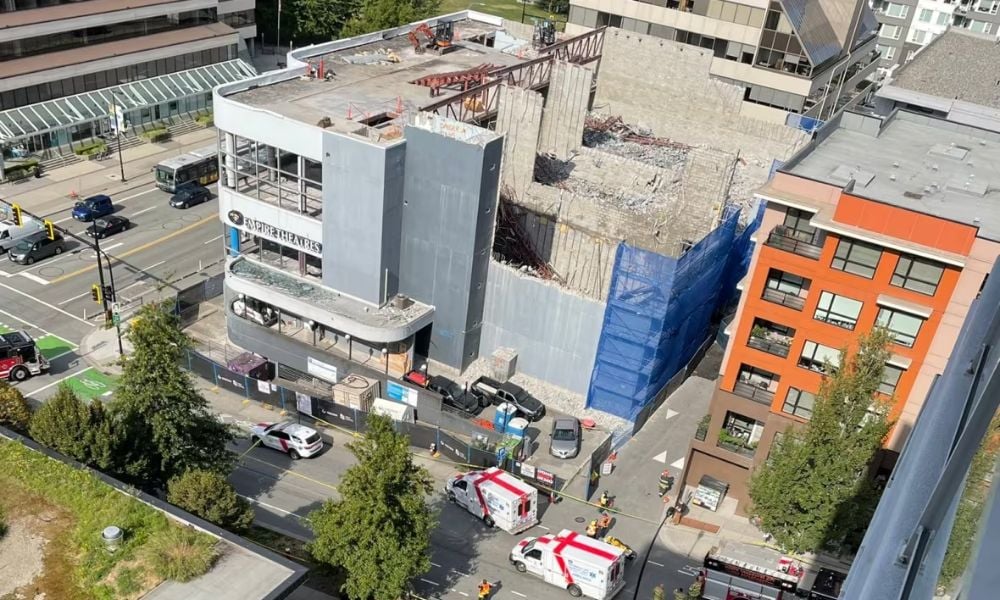Lawyer says 'lesson here for employers is the importance of following your paperwork'

A WorkSafeBC investigation report into a fatal floor collapse reveals lessons for employers in the construction industry.
“As someone who defends employers, the lesson here for employers is the importance of following your paperwork,” says Graeme Hooper, an associate counsel who acts for employers in occupational health and safety matters at Mitha Law Group.
The incident happened on August 25, 2021, and claimed the life of one worker, while another was seriously injured.
It took place at the old Cineplex theatre on West Esplanade in North Vancouver. Done Right Demolition and Disposal, a local demolition company, had been contracted to bring down the building for redevelopment.
WorkSafeBC, the provincial agency responsible for workplace safety, investigated the incident. Its report, which was obtained by North Shore News through a freedom of information request, reveals a series of occupational health and safety and Workers Compensation Act violations committed by the demolition company.
The investigation found that Done Right Demolition and Disposal proposed a method to bring down the building from within using a small excavator due to the building's size and the busy surroundings.
However, problems arose when the excavator's arm fell short of reaching the top of the second-floor wall being demolished. To compensate, the company created ramps and pads out of demolition debris to extend the excavator's reach. This did not follow the instructions laid out by the engineer, which made it clear the floor could withstand the weight of the excavator, but not the weight of the debris and the excavator.
The upper east cinema's second-level floor collapsed, plummeting approximately 7.9 meters to the floor below. The worker operating the excavator survived but sustained serious injuries, while the foreman, who was using a hose to suppress demolition dust, tragically lost their life. Residents in the area reported feeling the shockwaves from the collapse.
“WorkSafeBC has found that, in this case, the engineer specified not to accumulate the debris on that second floor and to only have the weight of the excavator on that second floor,” explains Hooper, “and therefore found that the failure to follow that instruction caused the collapse or contributed to the collapse.”
The structural engineer's caution that all debris must be removed before excavator work was disregarded. “In the face of that paperwork, it becomes very difficult for the employer to try to say that wasn't actually the cause,” says Hooper. “If you've got paperwork that says you need to be doing something, you need to actually follow those instructions."
The incident raises questions about the enforcement of occupational health and safety regulations. While prosecutions have historically been relatively rare in British Columbia, WorkSafeBC has shown an increased interest in pursuing administrative fines instead.
"While employers need to be aware of prosecution risks in any incident involving a fatality, the majority of cases result in administrative fines," says Hooper, who suggests WorkSafeBC will likely fine the company.
The magnitude of the fines, determined based on the employer's payroll, may vary. Hooper explained that for smaller employers, the fines might be relatively small, starting at $5,000 and increasing for high-risk violations. Nevertheless, he stresses employers should prioritize adhering to written documents, as failure to do so can have far-reaching legal consequences.





